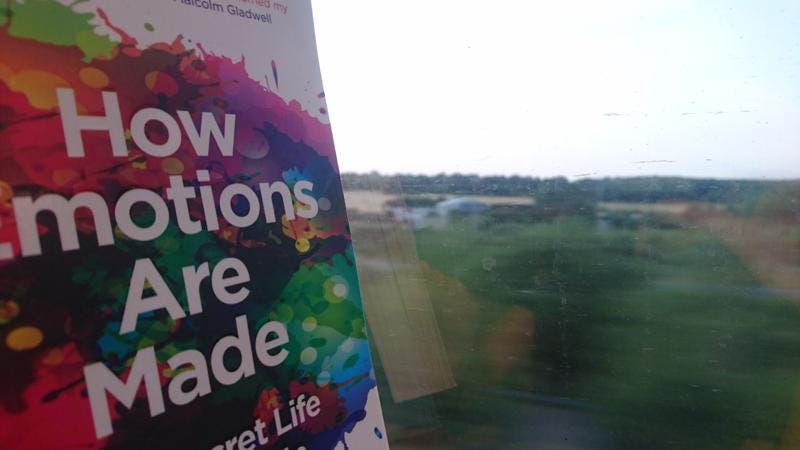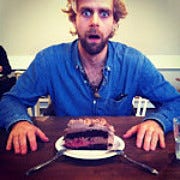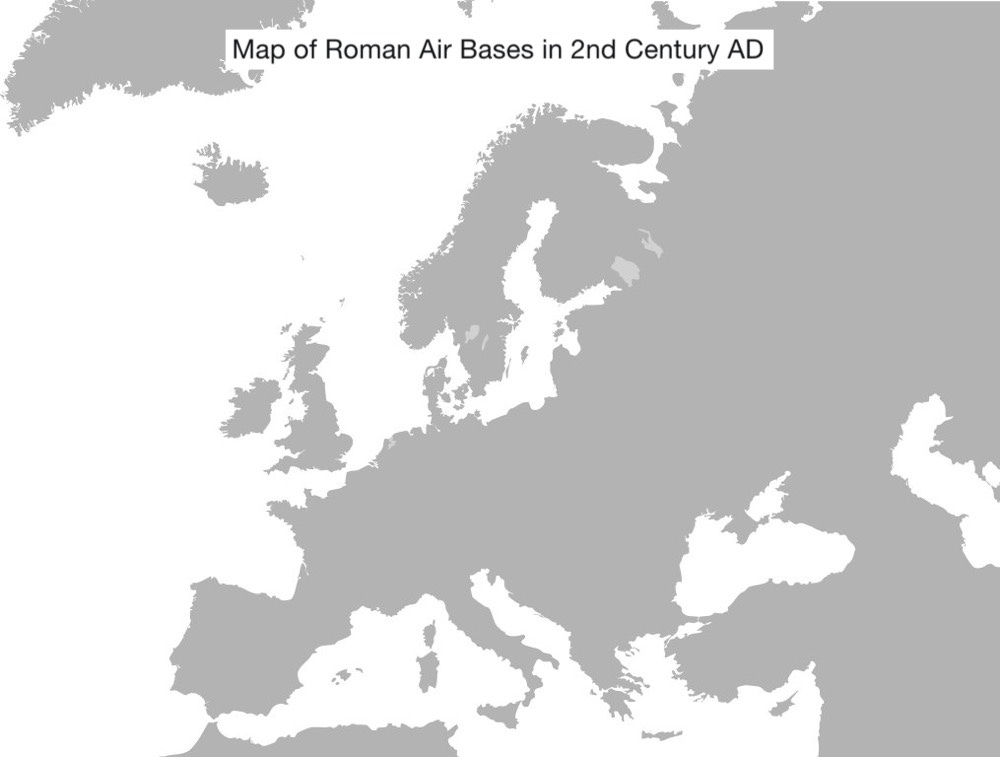#108: My 7 Books of 2018!

One of the books of the year!
Happy Friday!
This week I believe in Books!
As I've mentioned previously, I keep data. I'm particularly proud of the data I have collected over the last 6 years about my reading.
Firstly because I think reading is quite good, and keeping the data reminds me how important books are for my contentment.
Secondly because my reading tells a story.
For example, I finished a total of 41 books in 2018 - that's 46% more than last year - and I read twice as much fiction.
Sherlock Holmes would deduce from this information that I had much more free time to spend reading in bed, and that, in all likelihood, I did not have a girlfriend. Elementary!
Anyway, enough chit-chat. Here are the 7 books I'm most glad I read this year, in order of their date of first publication.
FICTION
Titus Groan by Mervyn Peake (1946)
This is actually the second time I've read this astonishing novel, but the first time was about 17 years pre-spreadsheet so basically never happened.
It has been said that the British were so traumatised by the Second World War that the survivors couldn't muster the creative energy to write a truly defining war novel.
The missing space on our collective bookshelf, it has been said, was (appropriately enough) occupied by the Americans and, in particular, by Joseph Heller's Catch-22.
But in my opinion (and I wasn't there) the horrifying aesthetics, the elaborate grotesquerie and the shadowy skulduggery of Mervyn Peake's Gormenghast trilogy (of which Titus Groan is the first volume) was exactly the novel that the Second World War deserved.
It's also very funny.
PSYCHOLOGY / HISTORY / MEMOIR
Man's Search for Meaning by Victor Frankl (1946)
Wait, did I only read this book for the first time this year?
This book has been so instrumental in my thought patterns for the past 9 months that I can't possibly have only finished it in March.
But the spreadsheet doesn't lie.
I've written about this short masterpiece far too much in this newsletter already, but if you're catching up then here's the link to my famous 5-a-Day Book Cult.
(Incidentally, I'm pondering another accessibly high-brow Book Cult next year. Maybe Marcus Aurelius. How does that sound?)
WRITING
Draft No. 4 by John McPhee (2013)
This is nothing more than a collection of essays that long-form non-fiction specialist-generalist John McPhee has written about his craft, and previously published in The New Yorker and elsewhere.
In other words, it is an indispensable logbook for any writers who one day dream of, say, writing a whole book about a tennis Grand Slam semi-final.
McPhee's writing process is singular, and he is well-aware of the luxuries he has enjoyed with editors over the years. But his commitment to structure (how the heck do you write a whole book about one tennis match?) is an inspiration to us lesser mortals.
McPhee also shows us around his Luddite collection of low-tech and no-tech writing tools that fondly remind me of my own attachment to the now-out-of-production Alphasmart Neo.
NATURE
The Hidden Life of Trees by Peter Wohlleben (2015)
This book made headlines for popularising the 'Wood Wide Web', the idea that plants, and in particular trees, communicate with each other through a network of fungal connections in the soil.
The headlines were deserved, but the book goes much further.
Peter Wohlleben is himself a forester, which lends an authority to the book that would be missing were it written by a generalist, or even an academician.
I believe him when he argues that trees in a forest care for each other when they are sick, to the point of sending vital nutrients to mere stumps.
I believe him as he carefully builds a vision of a forest as a society operating on time scales that are scarcely imaginable, let alone observable to the human eye.
I believe him when he suggests that this society of trees is as important to humanity and the rest of our ecosystem as the oxygen we breathe or the water that nourishes us.
And, when he politely points out that the forest is the only reason that we have such an amenable atmosphere in the first place, I believe him.
PSYCHOLOGY / NEUROSCIENCE
How Emotions Are Made by Lisa Feldman-Barrett (2017)
I remember banging on about this book back in the summer. And I'm going to bang on about it again, goddammit.
Lisa Feldman-Barrett is a practising neuroscientist. This makes me like her.
In this book, she turns the 'classical' model of emotion completely on its head. This makes me like her even more.
To sum up her argument in one sentence would be grossly unfair to Feldman-Barrett and do the book a heinous disservice.
So here we go:
Emotion is a social construct: it's a linguistic concept like 'hot', 'ours' or 'breakfast', and has a social reality that is not 'real' out there in the world.
This is good (if vaguely mind-blowing) news. It means that we can directly change our experience of the world by changing the emotional layer of constructs that we slather all over our lives like hot butter on our breakfast toast.
It means that, like the US Marines, we can decide that pain is just weakness leaving the body.
It means that we can go out and buy a book that changes the way we model the world (or at least read more about such a book on Dave's blog).
COMEDY / MEMOIR / HEALTH / FUCK
This is Going to Hurt by Adam Kay (2017)
There are very few books that you think might change the prevailing political attitude to our public services, and even fewer that do so while being ALOLZ ('Actually Laugh Out Loud' - blame inflation).
Not so funny is the fact that Junior Doctor Adam Kay got so fucked off with the way the NHS was being treated by our politicians that he quit his job and become a stand-up comedian.
It's a sorry state of affairs when 'stand-up comedian' is considered by anyone to be a more promising career than - well, almost anything - but certainly than being a doctor.
Please give this book to anyone who thinks that doctors are greedy selfish oafs or that the NHS should be replaced with Logan's Run-style executions. Thanks.
PSYCHEDELICS
How to Change Your Mind by Michael Pollan (2018)
Like John McPhee or Malcolm Gladwell, Michael Pollan is another one of those specialist-generalists who have done so much to popularise overlooked corners of our world.
In How to Change Your Mind, Michael Pollan shows us the vast spread of our psychedelic knowledge, from the natural history of the mushroom and the social history of the 1960s, through his own first psychedelic experiences undertaken as research for this book, to the modern renaissance of brain imaging and medical therapies.
Our doctors are desperate for new treatments for serious psychological afflictions like depression and addiction, and, after the recent 'breakthrough therapy designation' granted to psilocybin by the US Food and Drug Administration, this feels like the start of a big decade for psychedelics.
This book is a good place to start if you want to make sure you're on board before take-off.
Honourable mentions go to Anna Karenina by Leo Tolstoy, The White Tiger by Aravinda Adiga (both fabulous fiction), Carpe Diem Regained by Roman Krznaric (on how to seize your days), The Antidote by Oliver Burkeman (anti-positive thinking) and Into The Woods by John Yorke (storytelling).
Further Reading
Really interested in my reading? Feel free to peruse my Books of the Year from 2017.
The Nine Best Books Ever Written in the English Language (2010).
Also: visit a library. Before the internet we had books and it's not been an upgrade, he emailed with zero sense of irony.
FICTION-NON-FICTION
Usually here you'd find snippets from my reading in the last seven days. But you've had a surfeit of books this week, so here's the Christmas single you've all been waiting for...

Count 'em.
May you have fabulous festivities, with plenty of time to swaddle yourself in words.
Much love,
- dc

CREDITS
David Charles wrote this newsletter. David is co-writer of BBC Radio sitcom Foiled, and also writes for The Bike Project, Elevate and Thighs of Steel. He can be found at davidcharles.info and on Twitter @dcisbusy



